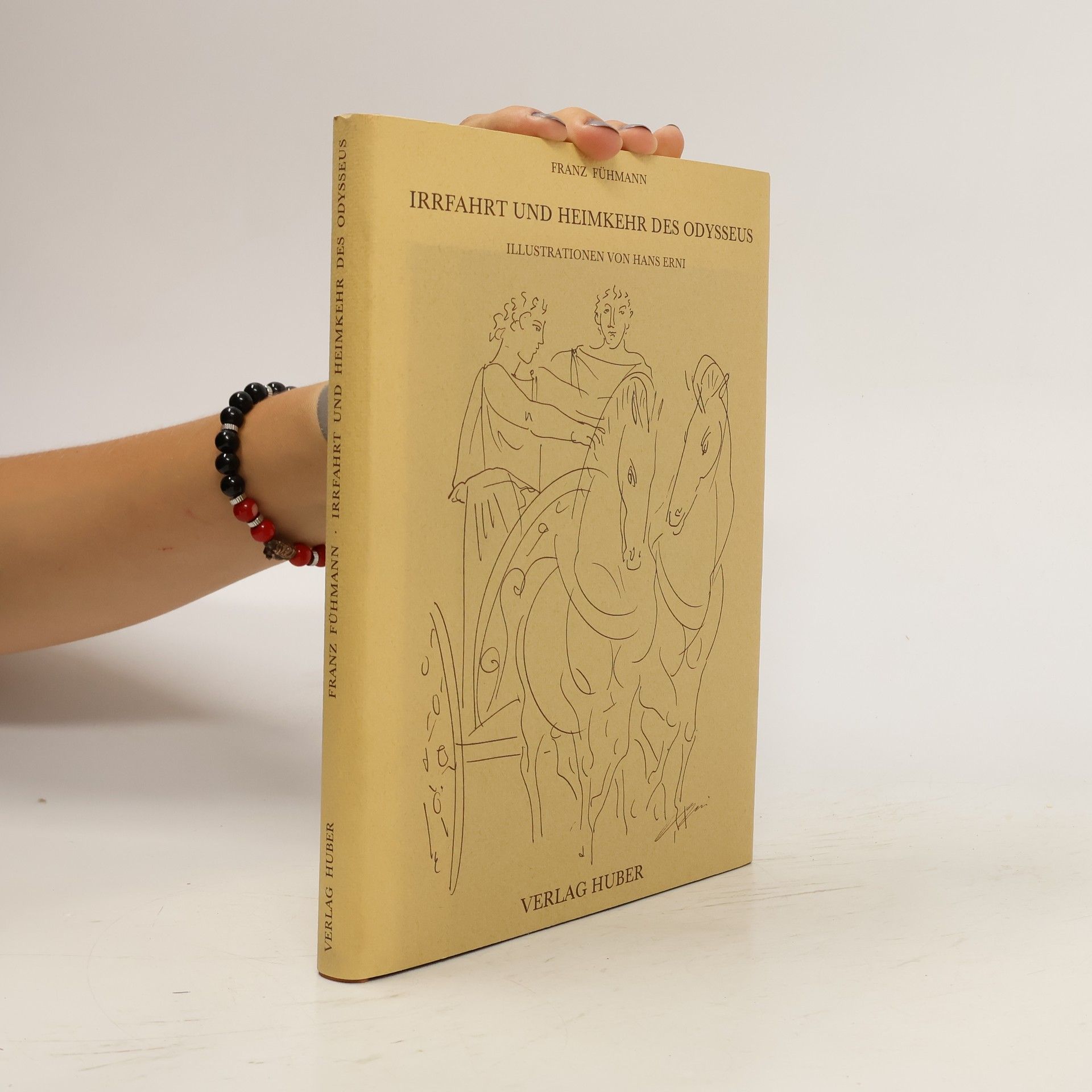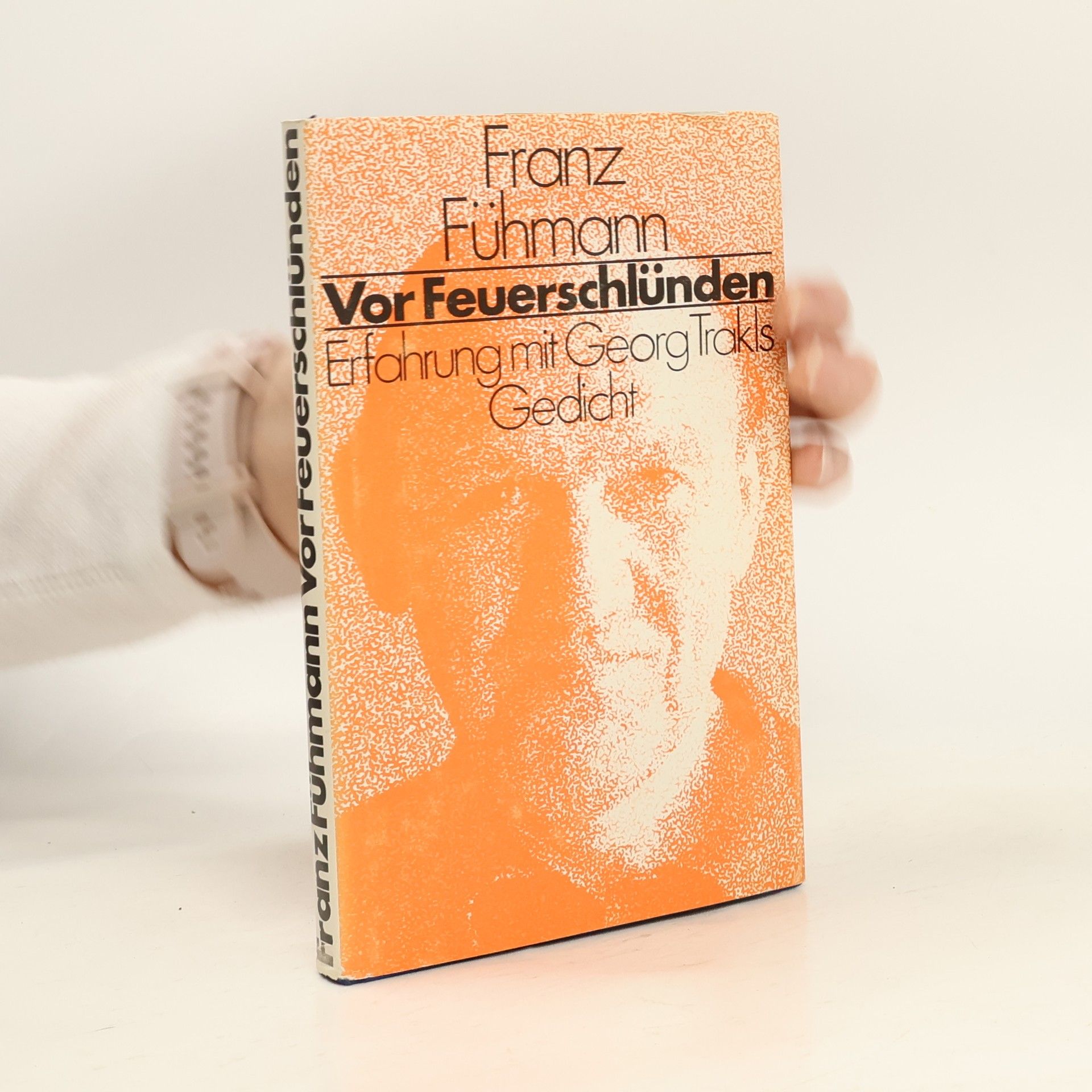Sinn und Form 5/2025
Beiträge zur Literatur
Franz Fühmann was a German writer active in East Germany, known for his diverse literary output including short stories, essays, screenplays, and children's books. His work often delved into profound existential questions, exploring the complexities of human identity. Fühmann possessed a distinctive ability to weave together epic scope with intimate character psychology, securing his significant place in German literature.







Beiträge zur Literatur
Ein Schriftsteller verlässt seinen Schreibtisch. Fährt nach Warnemünde. Nicht an den Strand, sondern in die Werft. Nicht zum Sonnenbaden, sondern zum Arbeiten. Es ist Franz Fühmann, der sich 1960 auf den Weg macht, um zu erfahren, wie sich das Leben an der Basis darstellt. Seine dort gemachten Erfahrungen erlebt er als Befreiung. Zweifel am System werden erst einige Jahre später und dann mit Vehemenz seine Sicht bestimmen, sein Leben, sein Werk. „Kabelkran und Blauer Peter“ ist ein bestens lesbares Stück Literatur, über eine Arbeitswelt, in der schon damals die Moderne mit sich steigernder Geschwindigkeit Einzug hielt. Doch dieser Reportage-Klassiker ist noch viel mehr: Er zeigt einen Menschen, der anfängt zu er- gründen, ob theoretische Muster im praktischen Leben eine Entsprechung finden.
The exploration of the lives of poet Georg Trakl and author Franz Fühmann reveals a deep engagement with the struggles of a turbulent century. Fühmann reflects on his own vulnerabilities to ideologies like Nazism and socialism, using Trakl's poetry as a means of resistance and understanding. The work examines the complexities of human existence, transcending simplistic ideologies to embrace the full spectrum of life’s experiences. Awarded the Scholl Siblings Prize in 1982, this poignant narrative remains relevant in today's climate of political extremism.
Four classical Greek myths retold with unexpected twists by an East German dissident. Franz Fühmann's subversive retellings of four Greek legends were first published in East Germany in 1980. In them, Fühmann plumbs the ancient tales' depths and makes them his own. Attuned to conflict and paradox, he sheds light on the complexities of sex and love, art and beauty, politics and power. In the title story, the love of the goddess Eos for the mortal Tithonos reveals the blessing and curse of transience, while "Hera and Zeus" probes the divine couple's tumultuous relationship and its devastating consequences for a world embroiled in war. Fühmann's unflinching account of Marsyas' flaying by Apollo has been widely read as a dissident political statement that has lost none of its incisive force. At times charged with sensuality, and at others honed to a keen analytical edge, Fühmann's shimmering prose is matched by Sunandini Banerjee's exquisite collages.
Es war einmal ein schrecklich langer Satz mit lauter finsteren Worten. Zwischen all den finsteren Worten befand sich ein kleines und, das sich nach Licht und Wärme sehnte. Eines Tages lief es deshalb davon, legte sich in die Sonne, wurde jedoch gleich müde, schlief ein – und als es erwachte, ware der Satz längst weg. Und das kleine und stand mutterseelenallein in der Welt. Das war noch schlimmer als Finsternis. Franz Fühmanns grandiose Erzählung für Kinder und jene, die sich Erwachsene nennen, begleitet das kleine und auf seiner Suche nach einer neuen Gemeinschaft. Zum Glück ist es wählerisch, geht nicht mit jedem oder jeder mit. Will sich nicht mit dem H zum Hund vereinigen, will nicht zwischen Mann und Maus untergehen. Kann warten, bis das richtige Wort vorbeikommt ... Eine im wahrsten Sinne des Wortes wundervolle Geschichte, trefflich illustriert von Jacky Gleich. Ein Buch, das Lust auf Sprache macht: verspielt, ganz ohne pädagogischen Zeigefinger, aber lehrreich. Eine große Freude – und noch viel mehr ...
In der Stadt Käsebrot lebt ein einzigartiges, buntes Vögelchen in einem blauen Nest, das von Kindern geliebt wird. Eines Morgens verschwindet es, und eine spannende Suche beginnt, unterstützt von Kindern und Wachmeistern. Franz Fühmanns Klassiker der DDR-Kinderliteratur kehrt zurück, ergänzt durch ein Nachwort zur Entstehungsgeschichte.
"Ich will nicht vergessen" "Wie tief hinab reicht das Erinnern?" Eines der Lebensthemen von Franz Fühmann war die literarische Vergegenwärtigung seiner Kindheit und Jugend, die er im Nachhinein als "eine gute Erziehung zu Auschwitz" bezeichnete. Einzelne Etappen dieser Zurichtung zum Nationalsozialismus hat er rückblickend in Erzählungen festgehalten. Der von Uwe Wittstock herausgegebene Band löst diese Texte aus der Reihenfolge ihrer Entstehung und ordnet sie nach den Entwicklungsstadien der kindlichen Hauptfigur. Es sind (bis auf das Schlussstück "Kameraden") alles Ich-Erzählungen und sie lesen sich im Zusammenhang wie ein Erziehungsroman der schwarzen Pädagogik, wie ein kleiner, finsterer Coming-of-age-Roman. Die Zusammenstellung kann so zum 100. Geburtstag des Autors liefern, was zur Wirkung Fühmanns auf ein großes Lesepublikum immer einen gut lesbaren, anschaulichen, sprachlich herausragenden, populären Roman.
Eine Rede
Fühmanns Rede über den in der DDR verpönten Gottfried Benn 1981 war nur in einer kirchlichen Einrichtung möglich. Sie blieb ungedruckt, aber als Tondokument erhalten. Ein erstaunliches Zeugnis! In der DDR war Gottfried Benn lange eine Unperson. Er galt als zu sehr verstrickt mit den Nationalsozialisten; tatsächlich hatte er die »Bewegung« anfangs begrüßt, allerdings wandte er sich schnell davon ab, um in einer »aristokratischen Form der Emigration« zu überwintern. Der DDR blieb er dennoch hochverdächtig. 1981, und zu diesem Zeitpunkt war das absolut spektakulär, nennt Fühmann ihn in einer Rede in den Samariteranstalten Fürstenwalde/Spree einen der »größten deutschen Lyriker in diesem Jahrhundert«. Sofort macht er klar, dass er Benn nicht nur schätzt, sondern ein intimer Kenner seines Werkes ist. Fühmann, selbst ein Schriftsteller, der sich seine eigenen politischen Irrtümer nicht verzeihen konnte (er hatte den Nazis angehangen und war nach 1945 ebenso blind den sozialistischen Parolen auf den Leim gegangen), sah in Benn insofern auch einen Gefährten. Er liest seine Gedichte als Kollege: Wie sind sie gemacht? Wie sind sie zu verstehen? Dass er vor einem Publikum spricht, das Benn gewissermaßen kaum dem Namen nach kennt, macht einen großen Reiz dieses Vortrags aus, der nach einem Tondokument verschriftlicht wurde und in der Fühmann-Werkausgabe nicht enthalten ist.
Schon mal was von der Fee am Schneesee gehört? Bei der das Schneeseekleereh wohnt? Das miterlebt, wie die Schneeseekleerehfee Schneeseekleerehfeezehweh bekommt? Noch nicht? Dann wird s aber höchste Zeit! Dieser Text zählt zu den grandiosesten Ereignissen der Kinderliteratur. Eine umwerfende Wortkaskade, die selbst Fischers Fritze erbleichen ließe. Und die Lust macht. Lust auf Sprache, Lust auf Sprachspiele. Aufs Selberlesen. Oder noch schöner aufs Zuhören. Bekommen doch Kinder immer wieder leuchtende Augen, wenn sich Älterean dieser Geschichte versuchen ... und dabei nicht nur auf ein Wort mit 16 »e« stoßen, sondern auch an die Grenzen ihrer Vorlesefähigkeit. Einfühlsam bebildert von Kristina Andres, erscheint dieses märchenhaft komische Märchen von Franz Fühmann endlich als Einzelausgabe! Eine Augenweide. Und ein Zungenbrecher. Einer, vor dem auch die Lachmuskeln gewarnt werden sollten kann es ihnen doch schnell ähnlich ergehen wie dem Drehzeh mit seinem Drehzehweh.
Ein Märchen - seit zwei Jahrhunderten zum kulturellen Schatz Deutschlands gehörend. Ein Gedicht, das dieses Märchen neuartig erzählt - verfasst von einem der bedeutendsten deutschsprachigen Autoren der Nachkriegszeit. Und Illustrationen, die Märchen und Gedicht begleiten, kommentieren, fortschreiben, in die heutige Zeit holen. Kristina Andres, mehrfach ausgezeichnete Illustratorin, erweckt mit ihren wunderbar feinen, viele Geschichten in der Geschichte erzählenden Bildern eine Welt voller Athmosphäre, in der das Fröhliche fröhlich, das Bedrohliche bedrohlich, das Traurige traurig und das Erlösende spürbar erlösend ist. Und in der ein Geißlein ungehorsam ist. zum Glück!